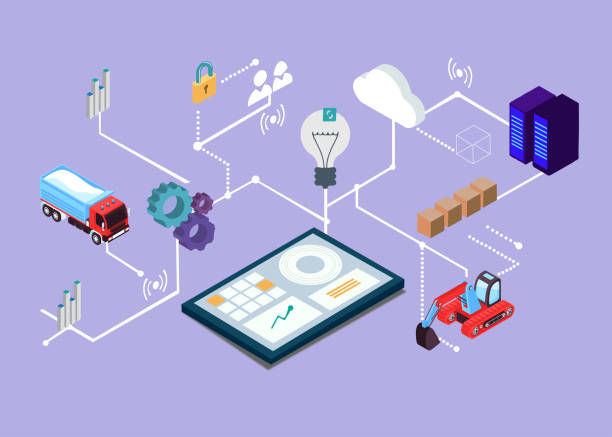The Potential of Blockchain in Supply Chain Management.
- The Moolah Team
- Jul 7, 2023
- 17 min read
This blog post will examine the potential of blockchain technology in supply chain management.
It will cover how blockchain can be used to enable secure and transparent supply chain tracking, enhance product provenance and authenticity, and improve supply chain efficiency.
It will also explore some of the challenges that come with implementing blockchain in supply chain management and provide examples of successful blockchain-based supply chain solutions.
I. Introduction
Supply chain management is a complex process that involves the coordination of multiple entities, from raw material suppliers to end customers. It is crucial for businesses to manage their supply chains effectively to ensure timely delivery of goods, maintain customer satisfaction, and optimize costs. However, the traditional supply chain management approach often suffers from inefficiencies, lack of transparency, and susceptibility to fraud and counterfeiting.
Blockchain technology, on the other hand, offers a potential solution to some of these challenges. A blockchain is a distributed ledger that records transactions in a secure, transparent, and immutable way. Each transaction is verified by a network of participants, and once recorded, cannot be altered or deleted. This makes blockchain an ideal technology for supply chain management, as it enables secure and transparent tracking of products from the source to the end customer.
In this blog post, we will explore the potential of blockchain in supply chain management. We will discuss how blockchain can enable secure and transparent supply chain tracking, enhance product provenance and authenticity, and improve supply chain efficiency. We will also examine some of the challenges that come with implementing blockchain in supply chain management and provide examples of successful blockchain-based supply chain solutions.
The importance of supply chain management cannot be overstated. Effective supply chain management is essential for businesses to maintain their competitiveness, optimize costs, and meet customer expectations. However, traditional supply chain management approaches are often fraught with inefficiencies, lack of transparency, and susceptibility to fraud and counterfeiting. These challenges can result in significant financial losses and reputational damage for businesses.
Blockchain technology has the potential to address some of these challenges by enabling secure and transparent supply chain tracking, enhancing product provenance and authenticity, and improving supply chain efficiency. By leveraging blockchain technology, businesses can increase the security and transparency of their supply chains, reduce costs, and enhance customer trust.
In the following sections of this blog post, we will delve into each of these potential benefits in more detail. We will also discuss some of the challenges and limitations of implementing blockchain in supply chain management and provide examples of successful blockchain-based supply chain solutions. By the end of this post, readers should have a comprehensive understanding of the potential of blockchain in supply chain management, as well as the challenges and opportunities that come with its implementation.

II. Blockchain for Secure and Transparent Supply Chain Tracking
One of the primary benefits of blockchain technology in supply chain management is the ability to enable secure and transparent tracking of products from the source to the end customer. With traditional supply chain management approaches, it can be challenging to trace the origins of a product and the journey it took through the supply chain. This lack of transparency can create opportunities for fraud, theft, and other types of malfeasance.
Blockchain technology can address these challenges by creating a transparent and immutable record of each transaction in the supply chain. Each transaction is recorded on a block in the blockchain, and once recorded, it cannot be altered or deleted. This makes it easy to trace the journey of a product through the supply chain and ensures that the information is accurate and tamper-proof.
The use of blockchain technology for supply chain tracking has several benefits. For example, it can enable better inventory management, reduce the risk of counterfeiting, and improve regulatory compliance. By providing a transparent and secure record of each transaction in the supply chain, businesses can ensure that their products are authentic and meet regulatory requirements.
Several companies are already leveraging blockchain for supply chain tracking. For example, Walmart is using blockchain technology to track the journey of its food products from the source to the store. By doing so, it can quickly identify the source of any contamination and remove affected products from the shelves, reducing the risk of foodborne illness. Other companies, such as Maersk and IBM, are using blockchain technology to track the journey of shipping containers and improve logistics efficiency.
While blockchain technology can enable secure and transparent supply chain tracking, there are still some challenges that need to be addressed. For example, there are issues around interoperability, scalability, and data privacy that need to be addressed to enable the widespread adoption of blockchain in supply chain management. Nonetheless, the potential benefits of using blockchain technology for supply chain tracking are significant, and it is likely that more companies will adopt this technology in the coming years.

III. Blockchain for Product Provenance and Authenticity
Another way that blockchain technology can be used in supply chain management is to enhance product provenance and authenticity. With the increasing concern around counterfeit goods, consumers and businesses are looking for ways to verify the authenticity of the products they purchase. Blockchain technology can provide a solution to this challenge by creating an immutable record of each product's journey through the supply chain.
By recording the journey of a product through the supply chain on the blockchain, businesses can ensure that the product is authentic and has not been tampered with. This can provide a higher level of assurance to customers, leading to increased trust and confidence in the product.
For example, luxury goods manufacturers can use blockchain technology to track the journey of their products from the point of production to the end customer. This can help to ensure that their products are genuine and have not been counterfeited. Similarly, companies in the pharmaceutical industry can use blockchain technology to track the journey of their products to ensure that they are genuine and have not been tampered with.
One example of a company using blockchain for product provenance and authenticity is Everledger. Everledger is a technology company that uses blockchain to track the journey of diamonds from the mine to the end customer. By doing so, it can ensure that each diamond is genuine and has not been involved in any conflict or human rights violations.
While blockchain technology can provide a solution to the challenge of counterfeit goods, there are still some challenges that need to be addressed. For example, there are issues around data privacy and security that need to be addressed to ensure that sensitive information is protected. Nonetheless, the potential benefits of using blockchain technology for product provenance and authenticity are significant, and it is likely that more companies will adopt this technology in the coming years.

IV. Improving Supply Chain Efficiency with Blockchain
Another potential benefit of using blockchain technology in supply chain management is the ability to improve supply chain efficiency. By creating an immutable record of each transaction in the supply chain, businesses can gain greater visibility into their supply chain operations. This can help them to identify areas where they can reduce costs and improve efficiency.
For example, blockchain technology can be used to track the movement of goods through the supply chain. This can help businesses to identify bottlenecks in the supply chain and take steps to address them. By doing so, they can reduce the time it takes for goods to move through the supply chain, which can lead to significant cost savings.
In addition to improving the efficiency of the supply chain, blockchain technology can also help businesses to reduce the risk of fraud and errors. With the use of smart contracts, businesses can automate many of the processes involved in supply chain management, such as payment and delivery. This can help to reduce the risk of errors and ensure that transactions are executed in a timely and accurate manner.
One example of a company using blockchain to improve supply chain efficiency is Walmart. In 2018, Walmart announced that it would require all of its suppliers of leafy greens to use blockchain technology to track their products from farm to store. By doing so, Walmart aims to improve the efficiency of its supply chain and reduce the risk of foodborne illness.
While there are certainly benefits to using blockchain technology to improve supply chain efficiency, there are also some challenges that need to be addressed. For example, there are issues around interoperability and standardization that need to be addressed to ensure that different blockchain networks can communicate with each other. Nonetheless, the potential benefits of using blockchain technology to improve supply chain efficiency are significant, and it is likely that more companies will adopt this technology in the coming years.

V. Challenges and Limitations of Implementing Blockchain in Supply Chain Management
While there are many potential benefits to using blockchain technology in supply chain management, there are also some challenges and limitations that need to be considered.
Some of the main challenges include:
A. High Cost:
Implementing blockchain technology can be expensive, especially for smaller businesses that may not have the resources to invest in this technology.
B. Complexity:
Blockchain technology is complex and can be difficult to implement, especially for businesses that do not have a lot of experience with this technology.
C. Interoperability:
There are currently many different blockchain platforms, and they are not all compatible with each other. This can make it difficult to share information between different parts of the supply chain.
D. Standardization:
There are no standardized protocols for using blockchain technology in supply chain management. This can lead to confusion and make it difficult to integrate different blockchain networks.
E. Scalability:
Blockchain technology can be slow and may not be able to handle large volumes of transactions. This can be a problem for businesses that need to process a lot of transactions quickly.
Despite these challenges, many businesses are still exploring the potential of blockchain technology in supply chain management. To overcome these challenges, some companies are working on developing solutions that are tailored to the needs of the supply chain industry. For example, some companies are developing blockchain platforms that are specifically designed for supply chain management, while others are working on developing standard protocols that can be used across different blockchain networks.
In addition, there are some limitations to what blockchain technology can achieve in supply chain management. For example, while blockchain can provide greater transparency and visibility into the supply chain, it cannot prevent fraud or other types of malicious activity. It is important for businesses to recognize these limitations and develop strategies to mitigate these risks.
In conclusion, while there are challenges and limitations associated with implementing blockchain technology in supply chain management, the potential benefits are significant. By enabling secure and transparent supply chain tracking, enhancing product provenance and authenticity, and improving supply chain efficiency, blockchain technology has the potential to transform the way that businesses manage their supply chains. As such, it is likely that we will see more companies adopting this technology in the coming years.

VI. Examples of Successful Blockchain-Based Supply Chain Solutions
While blockchain technology is still in the early stages of adoption in supply chain management, there are already some successful implementations that demonstrate the potential of this technology. In this section, we will explore some examples of successful blockchain-based supply chain solutions.
A. Walmart's Blockchain-based Food Traceability System
Walmart has implemented a blockchain-based food traceability system that enables the company to track the journey of fresh produce from the farm to the store. This system uses blockchain technology to create a transparent and secure record of each step in the supply chain, from the moment the produce is harvested to the moment it is sold in the store. By using this system, Walmart can quickly identify the source of any contamination or other issues with the produce, enabling the company to quickly remove any affected products from its shelves and prevent any further spread of contamination.
B. De Beers' Blockchain-based Diamond Traceability System
De Beers, one of the world's largest diamond producers, has implemented a blockchain-based diamond traceability system that enables the company to track each diamond from the moment it is mined to the moment it is sold. This system creates a tamper-proof and transparent record of each diamond's journey, providing customers with assurance that the diamonds they purchase are ethically sourced and conflict-free.
C. Maersk's Blockchain-based Shipping Platform
Maersk, one of the world's largest shipping companies, has developed a blockchain-based shipping platform that enables the company to track cargo as it moves through the supply chain. This platform provides real-time visibility into the location and status of each shipment, enabling Maersk to quickly identify any issues or delays in the supply chain and take appropriate action to ensure that shipments arrive at their destination on time.
D. IBM's Blockchain-based Supply Chain Platform
IBM has developed a blockchain-based supply chain platform that enables businesses to track the journey of their products from the moment they are manufactured to the moment they are sold. This platform provides real-time visibility into the supply chain, enabling businesses to quickly identify any issues or inefficiencies and take appropriate action to address them.
These are just a few examples of the many successful blockchain-based supply chain solutions that have been implemented in recent years. By leveraging the transparency, security, and efficiency of blockchain technology, businesses can create more transparent, efficient, and secure supply chains that provide greater value to their customers. As more businesses adopt blockchain technology in supply chain management, we can expect to see even more innovative solutions emerge in the years to come.

VII. Challenges in Implementing Blockchain in Supply Chain Management
While the potential benefits of using blockchain in supply chain management are numerous, there are also several challenges that come with implementing this technology. In this section, we will discuss some of the main challenges that companies face when integrating blockchain into their supply chain management processes.
A. Technical Challenges
One of the main challenges in implementing blockchain in supply chain management is the technical complexity of the technology. Blockchain is a complex system that requires a significant amount of technical knowledge and expertise to implement and manage. Many companies may not have the necessary technical skills or resources to integrate blockchain into their supply chain management processes.
B. Cost
Another significant challenge is the cost of implementing blockchain in the supply chain. Blockchain is a relatively new technology, and the cost of implementing it can be high. Companies must invest in hardware, software, and technical expertise to develop and implement blockchain-based solutions.
C. Interoperability
Interoperability is another challenge when it comes to implementing blockchain in the supply chain. Many companies may already have existing systems in place that are not compatible with blockchain technology. This means that companies may need to spend additional resources to integrate blockchain with their existing systems.
D. Security and Privacy
Security and privacy are critical concerns when it comes to implementing blockchain in the supply chain. While blockchain is a secure technology, it is not immune to hacking attempts. Companies must ensure that their blockchain-based systems are secure and that data is protected from unauthorized access.
E. Adoption
Finally, adoption is a significant challenge when it comes to implementing blockchain in the supply chain. Many companies may be hesitant to adopt new technology, especially if they do not see a clear return on investment. There is also a lack of standardization when it comes to blockchain technology, which can make it challenging for companies to adopt the technology.
Despite these challenges, many companies have successfully implemented blockchain in their supply chain management processes. By working with experienced blockchain developers and experts, companies can overcome these challenges and realize the benefits of using blockchain in the supply chain.

VIII. Challenges and Limitations of Implementing Blockchain in Supply Chain Management
While the potential benefits of implementing blockchain technology in supply chain management are significant, there are also several challenges and limitations that must be addressed. In this section, we will discuss some of the main obstacles to implementing blockchain in supply chain management.
A. Integration with Existing Systems
One of the main challenges to implementing blockchain in supply chain management is integrating it with existing systems. Many companies already have well-established supply chain management systems in place, and it can be difficult to introduce a new technology that may disrupt these systems. It is important to ensure that blockchain technology can seamlessly integrate with existing systems to avoid disruptions and delays.
B. Scalability
Another challenge is scalability. As supply chains grow more complex and global, the amount of data that needs to be processed and recorded increases exponentially. The scalability of blockchain technology is still being tested, and it remains to be seen if it can handle the volume of transactions that occur in large supply chains.
C. Security
While blockchain technology is touted for its security features, it is not immune to security threats. A 51% attack, in which a group of miners controls more than 50% of the network's computing power, could potentially compromise the security of the blockchain. Additionally, the security of the supply chain itself must also be considered. Blockchain technology cannot prevent physical tampering or theft of goods, and ensuring the authenticity of products at every step in the supply chain remains a challenge.
D. Cost
The implementation of blockchain technology in supply chain management can be costly, particularly for small and medium-sized businesses. The infrastructure required to support blockchain technology can be expensive, and the costs of training employees and integrating the technology into existing systems can also be significant.
E. Legal and Regulatory Frameworks
Finally, there is a need for legal and regulatory frameworks that support the use of blockchain technology in supply chain management. While some countries have started to develop these frameworks, others have yet to do so. This lack of consistency in legal and regulatory frameworks can create challenges for companies operating in multiple jurisdictions.
Despite these challenges, many companies have successfully implemented blockchain-based solutions in their supply chains. By addressing these challenges head-on and developing innovative solutions, companies can realize the benefits of blockchain technology and transform their supply chains for the better.
In the next section, we will provide examples of successful blockchain-based supply chain solutions.

IX. Challenges in Implementing Blockchain in Supply Chain Management
Blockchain technology has the potential to revolutionize supply chain management, but there are also several challenges associated with its implementation. In this section, we'll explore some of the key challenges that must be overcome to effectively implement blockchain in supply chain management.
A. High Costs
One of the major challenges of implementing blockchain in supply chain management is the high cost of development and maintenance. Developing a blockchain system requires significant investment in hardware, software, and personnel. Additionally, maintaining the system requires ongoing updates and security measures to ensure its effectiveness. These costs can be a significant barrier to entry for smaller companies, making it difficult for them to adopt blockchain technology in their supply chains.
B. Integration with Existing Systems
Another challenge of implementing blockchain in supply chain management is integrating it with existing systems. Many companies already have complex supply chain management systems in place, and integrating a blockchain system with these can be difficult. This is especially true for older systems that may not be compatible with newer technologies. It's important to ensure that the blockchain system is able to seamlessly integrate with existing systems to avoid disrupting the entire supply chain.
C. Regulatory and Legal Issues
There are also regulatory and legal issues associated with implementing blockchain in supply chain management. The use of blockchain technology in supply chains is a relatively new concept, and there is little legal and regulatory guidance available. Additionally, different countries may have different regulations regarding the use of blockchain technology, which can create additional complications. It's important for companies to work with legal experts to ensure that their use of blockchain technology in supply chain management is compliant with all relevant laws and regulations.
D. Limited Adoption
Finally, one of the biggest challenges of implementing blockchain in supply chain management is limited adoption. Despite its potential benefits, many companies are still hesitant to adopt blockchain technology in their supply chains. This is largely due to a lack of understanding about how blockchain works and its potential benefits. It's important for companies to educate themselves about the technology and its potential benefits, as well as to work with trusted partners to ensure successful adoption.
Overall, while blockchain technology has the potential to revolutionize supply chain management, there are several challenges that must be overcome to effectively implement it. By addressing these challenges head-on, companies can unlock the full potential of blockchain technology in their supply chains.

X. Challenges in Implementing Blockchain in Supply Chain Management
Despite the numerous benefits that blockchain technology can bring to supply chain management, there are still several challenges that must be addressed before its widespread adoption can be achieved. In this section, we will discuss some of the major challenges that need to be addressed.
A. High Costs and Technical Complexity
One of the major challenges of implementing blockchain in supply chain management is the high cost and technical complexity involved. Building a blockchain-based system requires significant investment in infrastructure and expertise. The cost of setting up a blockchain network can be prohibitively high for small and medium-sized enterprises (SMEs) that make up the majority of supply chains.
B. Integration with Legacy Systems
Another challenge is the integration of blockchain with existing legacy systems. Supply chains typically consist of multiple stakeholders, including manufacturers, distributors, retailers, and logistics providers, each using their own IT systems. Integrating these disparate systems with a blockchain-based system can be complex and time-consuming.
C. Standardization and Interoperability
Interoperability between different blockchain networks and standards is another challenge. With multiple blockchain platforms in use, there is a need for standardization to ensure seamless communication and data exchange between them. Currently, there is no universally accepted standard for blockchain in supply chain management.
D. Data Privacy and Security
Another challenge of implementing blockchain in supply chain management is ensuring the privacy and security of data. While blockchain is a secure technology, it is not immune to cyber-attacks. Additionally, there are concerns about the confidentiality of sensitive data, such as supplier and customer information, that are stored on a public blockchain network.
E. Legal and Regulatory Challenges
Legal and regulatory challenges are also a concern. The use of blockchain technology in supply chain management raises questions about ownership, liability, and jurisdiction. There is also a lack of clear regulations regarding blockchain technology in some countries, which can lead to uncertainty and legal challenges.
F. Resistance to Change
Finally, resistance to change is a common challenge when implementing new technologies, and blockchain is no exception. There may be resistance from stakeholders who are unfamiliar with the technology or who are hesitant to change established processes.
Despite these challenges, many companies and organizations are already experimenting with blockchain-based solutions in supply chain management. As the technology continues to mature and evolve, it is expected that these challenges will be overcome, and the benefits of blockchain in supply chain management will become more widely recognized.
Conclusion:
In conclusion, blockchain technology has the potential to revolutionize supply chain management by enabling secure and transparent tracking, enhancing product provenance and authenticity, and improving supply chain efficiency. However, its implementation comes with several challenges, such as high costs and technical complexity, integration with legacy systems, standardization, data privacy and security, legal and regulatory challenges, and resistance to change. Nevertheless, these challenges are not insurmountable, and as the technology continues to develop and mature, the benefits of blockchain in supply chain management are likely to become increasingly apparent.

XI. Challenges and Limitations of Implementing Blockchain in Supply Chain Management
Blockchain technology has the potential to revolutionize the supply chain industry, but its implementation is not without challenges and limitations. In this section, we will discuss some of the main challenges that organizations face when implementing blockchain technology in their supply chains.
A. Cost and Complexity
One of the main challenges of implementing blockchain in supply chain management is the cost and complexity of the technology. The initial investment required to develop and integrate a blockchain solution can be significant, and ongoing maintenance and management costs can also be high. Additionally, the complexity of blockchain technology can make it difficult for organizations to understand and utilize its full potential.
B. Interoperability and Integration
Another challenge is interoperability and integration with existing systems. Many organizations already have complex supply chain management systems in place, and integrating blockchain technology can be a complex process that requires significant coordination and collaboration across different departments and stakeholders. In addition, blockchain solutions may need to integrate with other emerging technologies, such as the Internet of Things (IoT) or artificial intelligence (AI), which can add additional complexity.
C. Regulatory and Legal Issues
There are also regulatory and legal issues that organizations must consider when implementing blockchain technology in their supply chains. Depending on the industry and jurisdiction, there may be specific rules and regulations that must be followed when tracking and managing supply chain data. Additionally, there may be legal implications if data is lost or compromised due to a security breach or other issue.
D. Governance and Security
Governance and security are also critical considerations when implementing blockchain in supply chain management. Organizations need to have clear governance structures in place to ensure that data is managed effectively and efficiently. Additionally, security is a key concern, as any breach of the blockchain system can have significant implications for the entire supply chain.
E. Adoption and Resistance
Finally, adoption and resistance can be a significant challenge when implementing blockchain technology in supply chain management. Many stakeholders may be resistant to change or may not understand the benefits of using blockchain technology. Additionally, supply chain participants may be reluctant to share data due to concerns about competition or data privacy.
Despite these challenges and limitations, many organizations have successfully implemented blockchain solutions in their supply chains. By carefully considering the challenges and developing strategies to address them, organizations can realize the full potential of blockchain technology in supply chain management.

XII. Conclusion
In conclusion, blockchain technology has enormous potential to revolutionize the supply chain industry. By enabling secure, transparent, and efficient tracking of goods and services, blockchain can help reduce costs, improve traceability, and enhance customer trust. Blockchain-based supply chain solutions have already been successfully implemented in various industries, including food and beverage, pharmaceuticals, and luxury goods.
However, implementing blockchain in the supply chain is not without challenges. Companies need to invest in the necessary infrastructure and resources, develop clear guidelines and standards for data sharing, and address regulatory and legal issues. Moreover, blockchain technology is not a one-size-fits-all solution and may not be suitable for all supply chain use cases.
Despite these challenges, the potential benefits of blockchain in supply chain management cannot be ignored. As the technology continues to evolve and mature, we can expect to see more innovative use cases and solutions that leverage blockchain's capabilities. It is up to industry players and policymakers to work together to unlock the full potential of blockchain technology in supply chain management and drive the industry forward.
In conclusion, blockchain technology has tremendous potential in revolutionizing supply chain management. By enabling secure and transparent tracking, improving efficiency, and enhancing product authenticity, blockchain can help address some of the challenges faced by businesses and consumers alike. While there are still challenges to overcome in implementing blockchain in supply chains, there are already successful blockchain-based solutions in various industries that demonstrate its capabilities. We hope you found this post informative and useful. If you enjoyed reading it, please subscribe to our newsletter to stay updated on the latest developments in blockchain and supply chain management. Thanks for reading!
Best regards,
Moolah







Comments